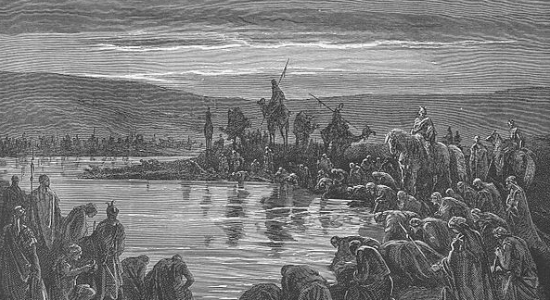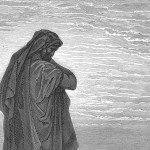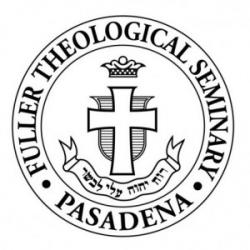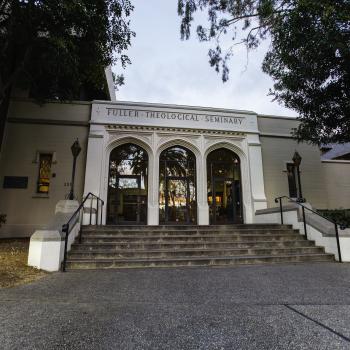This is the eighth installment of a series of posts by Dr. Yong on the theme of the “Holy Spirit and Mission in Canonical Perspective.” See all the posts here.
Judges 3:10, 6:34, 11:29
The book of Judges, with its bloodshed and gruesome violence, is a challenge for any biblical theology of mission. At its best, missiological readings of Judges point out that the judges are deliverers, effectively those sent by God to save Israel, or that the book epitomizes the cosmic battle between goodness and evil, between God and the powers of sin and rebelliousness. As is well known, the stories of the judges involve the cyclical movement of the tribes of Israel falling into idolatry, being subjugated under foreign kings and their armies, calling to God from out of their pain and suffering, and then experiencing liberation through the divine empowerment of a judge who leads them to overthrow the yoke of oppression. But the missiological problem is that those to whom Israel is supposed to be “a priestly nation” (Ex. 19:6; see ch. 1 above) not only lead Israel astray – Yahweh said: “they shall become adversaries to you, and their gods shall be a snare to you” (Judg. 2:3) – but are targeted, by divine authorization no less, for obliteration and extermination: “But as for the towns of these peoples that the Lord your God is giving you as an inheritance, you must not let anything that breathes remain alive. You shall annihilate them—the Hittites and the Amorites, the Canaanites and the Perizzites, the Hivites and the Jebusites—just as the Lord your God has commanded, so that they may not teach you to do all the abhorrent things that they do for their gods, and you thus sin against the Lord your God” (Deut. 20:16-18). If from a missiological perspective the people of God are to participate in the missio Dei to save the world, it is no wonder that the narratives of the Judges are often marginalized if not altogether absent in mission theology. The nations in Judges are not the objects of Israel’s witness as much as subjects of God’s testing the Israelite devotion and commitment (2:22, 31:1, 4).

But what if we were to reconsider this book from a pneumatological perspective. There are here seven references to the presence and activity of the ruach of Yahweh: on Othniel (3:10), Joshua (6:34), Jephthah (11:29), and Samson (in chs. 13-15; to be discussed in the next section). The Spirit enables Othniel to prevail over King Cushan-rishathaim of Aram, while the Spirit leads Gideon to mobilize the Abiezrites, “the weakest in Manasseh” (6:15), and those from other tribes to resist, and eventually repel, the invading Midianites. The case of Jephthah is a bit different, as it says only that upon the arrival of the Spirit, he “passed through Gilead and Manasseh. He passed on to Mizpah of Gilead, and from Mizpah of Gilead he passed on to the Ammonites” (11:29), defeating eventually the latter antagonists through the enablement of the wind of Yahweh. In between, however, he makes his fateful vow, an apparent attempt to secure Yahweh’s favor by promising a sacrificial offering in return (as if not fully trusting the divinity, the text suggests), that turns out to be his only daughter (11:30-34).
As there are many more judges in the book than these four, the question arises as to why the Spirit is mentioned only in these cases. When it is observed that each of those specifically indicated as enabled by the Spirit leads successful military excursions into a new geographical area – Othniel in the south, Gideon in the north, Jephthah in the east, and Samson in west (against the Philistines) – an argument could be made that these pneumatic references are representative of Yahweh’s intention to completely deliver Israel and secure the fullness of the land promised to Abraham and his descendants. What is undeniable within the scope of the Judges narrative is that despite Israel’s repeated unfaithfulness, Yahweh is not uncompassionate when Israel “cried out” to the Lord under enemy subjugation (3:9, 6:6-7, passim; cf. 2:18), and the sending of his Spirit to raise up liberators is a direct response to their cry. Yet even from this perspective, God is also understood as empowering Israel to dispossess the surrounding nations (11:24), at least of their lands, if not also of their lives, and hence the Spirit exacerbates missiology as a problem rather than inspires missiological witness.
I would like, however, to suggest another perspective on the breath of Yahweh, one that follows the structure provided by the three speeches of Yahweh in the book: that of setting up the story’s main tension regarding whether or not Israel will be faithful to the covenant (2:1-5); that in which there is a mid-point assessment regarding Israel’s persisting infidelity, which intensifies the tension (6:7-10); and that which denounces Israel for her disloyalty despite Yahweh’s continuing salvation (10:11-16), thereby collapsing the tension and opening up to the disintegration in the last half of the book. Within this framework, then, the first three references to the Spirit can be correlated with the divine speeches. The Spirit’s visitation upon Othniel makes good on Yahweh’s promise to be with Israel even in her time of trouble. Next, the Spirit’s presence with Gideon – literally being clothed with Gideon, as if residing within him – testifies to Yahweh’s resolve amidst, even within the depths of, Israel’s increasing instability, volatility, and unreliability, particularly when viewed through Gideon’s own post-pneumatic leadership of the people into idolatry (8:22-28). And despite this failure, the Spirit’s still brings about victory through Jephthah but also, precisely because of Israel’s stubborn waywardness, precipitates its dissolution into chaos and anarchy as symbolized by the ruin of Jephthah and the destruction of his innocent daughter (with things getting even worse with Samson and the rest of the book, as we shall see next). From this perspective, then, the charismatic endowments of the Spirit are for the salvation of Israel, reflecting Yahweh’s passion to keep covenant with Israel (neither provoking nor preventing the judges’ failings in the process), in effect sustaining hope against hope albeit and amidst Israel’s inexorable ruin as those given the breath of life continue in their insubordination.
What then is the missiological lesson for us at this mid-point of the Judges narrative? To be sure our commissioning for the missio Spiritus can enable our participation in the redemptive work of God even as it can devolve into our own agendas, replete with cultural ethnocentrism, economic imperialism, political colonialism, and religious fanaticism. If we think ourselves immune from such seductions, we need only to consider the Judges and the spiral of violence unleashed in a history where the Spirit was still visibly present. Attempting to discern the missio Spiritus in Judges thus invites us to think about how the Spirit might check our imprudent zealousness (here the Spirit decommissions us and our misguided agendas). More importantly, it suggests that the mission of the Spirit, while always replete with implications for our relations and engagement with others, is no less concerned with us, with how we are to live in faithfulness into the covenant story of God. Without the latter, the missio Dei will unravel, perhaps even horrifically into the genocide recorded in the book of Judges.
Amos Yong came to Fuller Seminary in July 2014 from Regent University School of Divinity, where he taught for nine years, serving most recently as J. Rodman Williams Professor of Theology and dean. Prior to that he was on the faculty at Bethel University in St. Paul, Bethany College of the Assemblies of God, and served as a pastor and worked in Social and Health Services in Vancouver, Washington. Yong’s scholarship has been foundational in Pentecostal theology, interacting with both traditional theological traditions and contemporary contextual theologies—dealing with such themes as the theologies of Christian-Buddhist dialogue, of disability, of hospitality, and of the mission of God. He has authored or edited over 30 volumes.
Follow Fuller Seminary on Twitter at @fullerseminary.











